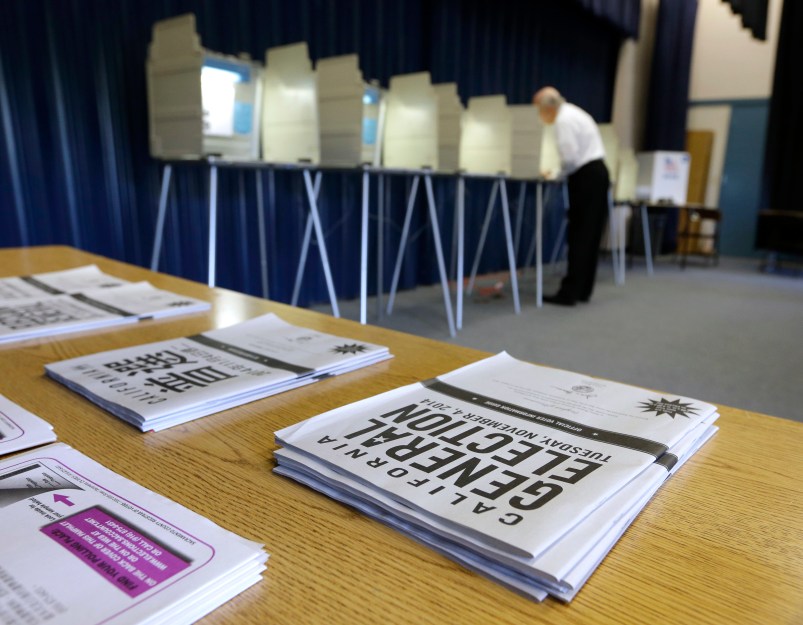RALEIGH, N.C. (AP) — Federal judges on Thursday struck down nearly 30 North Carolina House and Senate districts as illegal racial gerrymanders, but will allow General Assembly elections to be held using them this fall.
The decision by a three-judge panel comes six months after another set of judges struck down North Carolina’s congressional districts for similar reasons. Thursday’s ruling covering 19 House and nine Senate districts is yet another blow to the GOP lawmakers in North Carolina, which has seen several laws it enacted either partially or wholly overturned by the federal courts.
The U.S. Supreme Court announced in June that it would hear the appeals of Republican state leaders in that case, where two majority-black congressional districts were thrown out. The previous map drawn in 2011 and still being challenged helped give the state GOP more seats within the congressional delegation in the swing state.
The legislative maps, also approved in 2011, also helped Republicans pad their majorities in the two chambers after they took control of the legislature for the first time in 140 years the year before.
Writing for the panel in Thursday’s ruling, U.S. Circuit Judge James Wynn said requiring lawmakers to redraw maps now would result in confusion for voters, candidates and election officials. State lawmakers will be required to fashion new plans when they reconvene for their legislative session early next year.
Postponing the 2016 legislative elections “would cause significant and undue disruption to North Carolina’s election process,” Wynn wrote. “Nonetheless, plaintiffs, and thousands of other North Carolina citizens, have suffered severe constitutional harms stemming from defendants’ creation of 28 district racially gerrymandered in violation of the equal protection clause.”
During a trial in Greensboro in April, current and former Democratic legislators and redistricting experts testified there was no need for GOP legislative leaders to draw so many House and Senate districts with black voting-age populations above 50 percent. They said black and white voters had been joining forces in recent years to elect candidates favored by black residents.
The ruling “is a tremendous victory for our state’s voters and for everyone who values fair elections,” Bob Hall, executive director of the election reform group Democracy North Carolina, said in a release. “With computerized precision, GOP lawmakers drew zig-zagging political district lines that separated black voters from white and other voters in order to prevent multi-racial fusion coalitions from electing candidates the Republicans feared.”
Attorneys for the state said racial polarization in voting still existed in North Carolina and that a 2009 U.S. Supreme Court decision says legislators can find safe harbor from U.S. Voting Rights Act liability when they draw majority-black districts in areas that can support them.
Legislative leaders who helped draw the maps said the ruling contradicts a decision by the U.S. Justice Department in 2011 not to challenge the maps and rulings by the state Supreme Court upholding the maps.
“However, we are relieved for voters that the … court did not disrupt the current election that is already underway,” Rep. David Lewis, R-Harnett, and Sen. Bob Rucho, R-Mecklenburg, in a statement, adding they were evaluating their next legal steps.
The legislature redrew the congressional maps following a February court decision and delayed congressional primaries until June.
Copyright 2016 The Associated Press. All rights reserved. This material may not be published, broadcast, rewritten or redistributed.







John Roberts ! ! —
John Roberts line 1 …
The court says “We’re striking it down but, what the hell, go ahead and use them for the next elections.”
It’s nice to see they are acting so decisively to protect democracy in North Carolina.
“By the way,” the court added, “we hope to see new, improved gerrymandering from the next legislature. Hopefully, it will be less offensive to us and, therefore, worthy of letting stand until a future legislature can gerrymander them in such a way to meet our approval.”
Oooooo-kay.